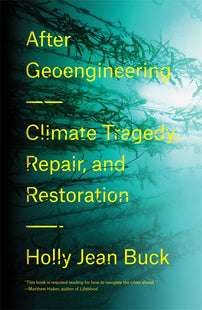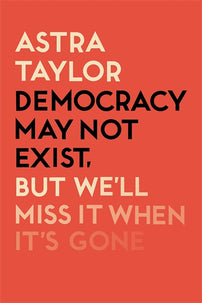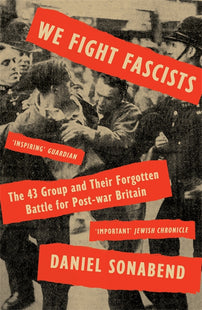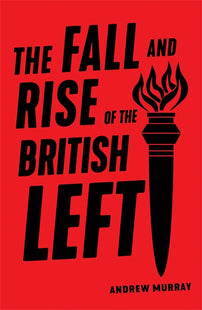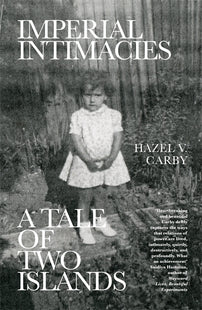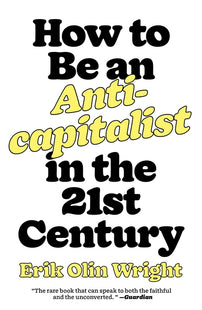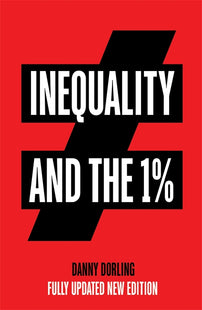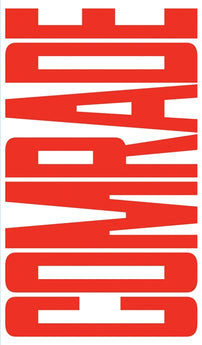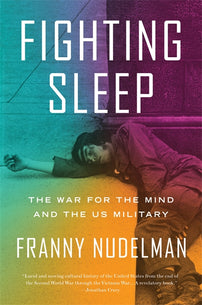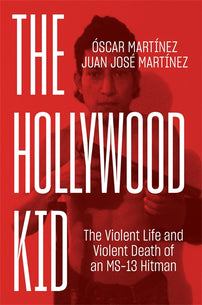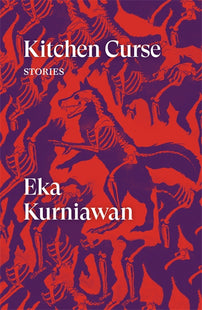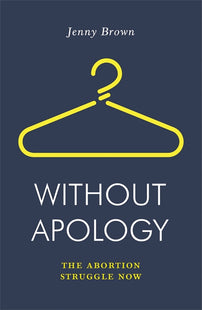Verso: Autumn 2019
Announcing some new books on our shelves for Autumn!
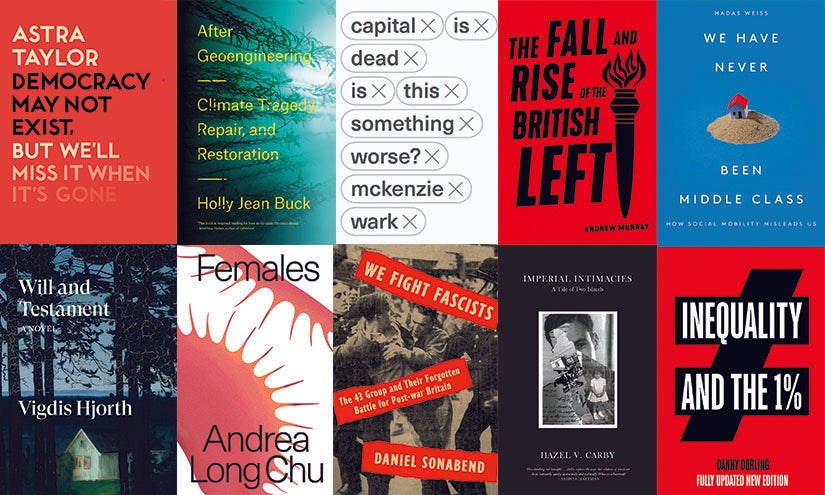
Autumn is in full swing at Verso, with lots of new exciting books on our shelves. And, we have a special offer for our email subscribers, with 50% off the below books.
50% off will end on October 30 (23:59 bst) and can only be activated via the special link in your email. If the below titles aren't showing at 50% off then go back to your email and click through again. This offer is not available to email subscribers in North America (an offer will be coming your way shortly!).
[book-strip index="1" style="buy"]In this groundbreaking book, Holly Jean Buck charts a possible course to a liveable future. Climate restoration will require not just innovative technologies to remove carbon from the atmosphere, but social and economic transformation. The steps we must take are enormous, and they must be taken soon. Looking at industrial-scale seaweed farms, the grinding of rocks to sequester carbon at the bottom of the sea, the restoration of wetlands, and reforestation, Buck examines possible methods for such transformations and meets the people developing them.
[book-strip index="2" style="buy"]In this radical and visionary new book, McKenzie Wark argues that information has empowered a new kind of ruling class. Through the ownership and control of information, this emergent class dominates not only labour but capital as traditionally understood as well. So how do we find a way out? Capital Is Dead offers not only the theoretical tools to analyze this new world, but ways to change it. Drawing on the writings of a surprising range of classic and contemporary theorists, Wark offers an illuminating overview of the contemporary condition and the emerging class forces that control—and contest—it.
Read an excerpt here.
[book-strip index="3" style="buy"]To protect the future of life on earth, we need to do more than just reimagine the economy—we have to change everything. One of the seminal thinkers of the program that helped ignite the US Green New Deal campaign, Ann Pettifor explains how we can afford what we can do, and what we need to do, before it is too late.
Read an excerpt here.
[book-strip index="4" style="buy"]THE 2020 VERSO RADICAL DIARY is a beautifully designed week-to-view planner for keeping track of the year ahead. Alongside illustrations and book excerpts, it features significant radical dates from throughout history—including the English Civil War and Black Panther movement, through to the protests of 1968 and feminist emancipation, touching on the lives of revolutionaries such as Angela Davis, Rosa Luxemburg and Martin Luther King Jr.
[book-strip index="5" style="buy"]“Everyone is female, and everyone hates it.”
So begins Andrea Long Chu’s genre-defying investigation into sex and lies, desperate artists and reckless politics, the smothering embrace of gender and the punishing force of desire. A thrilling new voice who has been credited with launching the “second wave” of trans studies, Chu shows readers how to write for your life, baring herself with a morbid sense of humor and a mordant kind of hope.
Will and Testament is a lyrical meditation on trauma and memory, as well as a furious account of a woman’s struggle to survive and be believed. Vigdis Hjorth’s novel became a controversial literary sensation in Norway and has been translated into twenty languages.
Read an excerpt here.
On Translating Vigdis Hjorth: an essay by Charlotte Barslund.
[book-strip index="7" style="buy"]Democracy is in crisis. In every major company it has been stole by elites or in the hands of strong men. In fact, real democracy—inclusive and egalitarian—has in fact never existed. In this urgent and engaging book, Astra Taylor invites us to re-examine the term. Is democracy a means or an end? A process or a set of desired outcomes? What if the those outcomes, whatever they may be—peace, prosperity, equality, liberty, an engaged citizenry—can be achieved by non-democratic means? Or if an election leads to a terrible outcome? If democracy means rule by the people, what does it mean to rule and who counts as the people? The inherent paradoxes are too often unnamed and unrecognized. But to ignore them is no longer possible.
[book-strip index="8" style="buy"]In 1946 many Jewish soldiers returned to their homes in England imagining that they had fought and defeated the forces of fascism in Europe. Yet in London they found a revived fascist movement inspired by Sir Oswald Mosley and stirring up agitation against Jews and communists. Forty-three Jewish servicemen met together and set up a group that tirelessly organised, infiltrated meetings, and broke up street demonstrations to stop the rebirth of the far right.
The history of the 43 Group is not just a gripping story of a forgotten moment in Britain’s postwar history; it is also a timely lesson in how to confront fascism, and how to win.
This book is essential reading for those who want to know where Corbynism comes from: the policies, personalities and moments of resistance that have produced this new horizon. This includes the story of power struggles within the Labour Party, and the eventual defeat of New Labour. The movements outside it—unions, feminists groups, anti-fascists activists, anti-war protestors—that have driven the policies of the movement forward. And the powerful influence of international groups that have shaped the potential for a global progressive politics.
Read an excerpt here.
[book-strip index="10" style="buy"]A haunting, evocative history of British Empire, told through one woman’s family story.
[book-strip index="11" style="buy"]Erik Olin Wright has distilled decades of work into this concise and tightly argued manifesto: analyzing the varieties of anticapitalism, assessing different strategic approaches, and laying the foundations for a society dedicated to human flourishing. How to Be an Anticapitalist in the Twenty-First Century is an urgent and powerful argument for socialism, and an unparalleled guide to help us get there.
[book-strip index="12" style="buy"]In Inequality and the 1% leading social thinker Danny Dorling lays bare the extent and true cost of the division in our society and asks what have the super-rich ever done for us? He shows that it is the 1% that threatens us with the most harm and why we must urgently redress the balance
[book-strip index="13" style="buy"]In the twentieth century, millions of people across the globe addressed each other as “comrade.” Now, among the left, it’s more common to hear talk of “allies.” In Comrade, Jodi Dean insists that this shift exemplifies the key problem with the contemporary left: the substitution of political identity for a relationship of political belonging that must be built, sustained, and defended.
[book-strip index="14" style="buy"]In Fighting Sleep, Franny Nudelman recounts the struggle over sleep in the postwar world, revealing that the subject was instrumental to the development of military science, professional psychiatry, and antiwar activism.
[book-strip index="15" style="buy"]The compelling story of the life and death of a Salvadoran gangster.
The Salvadoran journalist Óscar Martinez and his anthropologist brother Juan José Martínez got to know the Hollywood Kid when he informed on MS-13. In his hideaway shack, he recounted a life of killing—a death toll of more than fifty rival gang members—until his own murder ended the story. Vivid and violent, The Hollywood Kid brings a brutal world to life, illustrating the geopolitical forces propelling a country toward ever more vicious extremes.
[book-strip index="16" style="buy"]Nominated for the Man Booker International, Eka Kurniawan brings his short stories into English for the first time.
Read an excerpt here.
[book-strip index="17" style="buy"]We Have Never Been Middle Class proposes that the middle class is an ideology. Tracing this ideology up to the age of financialisation, it exposes the fallacy in the belief that we can all ascend or descend as a result of our aspirational and precautionary investments in property and education.
[book-strip index="18" style="buy"]With an antiabortion majority on the Supreme Court and several states attempting to outlaw abortion altogether, many activists are on the defensive, hoping to hold on to reproductive rights in a few places and cases. This spirited book shows how feminism can start winning again.
[book-strip index="19" style="buy"]Leading English-language account of the fall of Lula’s Workers’ Party and rise of Bolsonaro and the New Right.
[book-strip index="20" style="buy"]Carlos Slim is one of eight people whose combined wealth equals that of the 3.6 billion people who make up the poorest half of humanity. A businessman who dominates telecoms and global real estate, and a major shareholder of the New York Times, Slim exerts a degree of power in Mexico unmatched by any politician.
After years of thorough investigation, Diego Osorno has produced an extraordinary portrait detailing the effects of great wealth. His time with Slim forces Osorno to pose an age-old question: What does it profit a man if he gains the world and loses his own soul?
[book-strip index="21" style="buy"]In this collection of essays, Steve Fraser, the preeminent historian of American capitalism, rewrites the arc of the American saga with class conflict center stage and mounting a serious challenge to the consoling fantasy of American exceptionalism.
